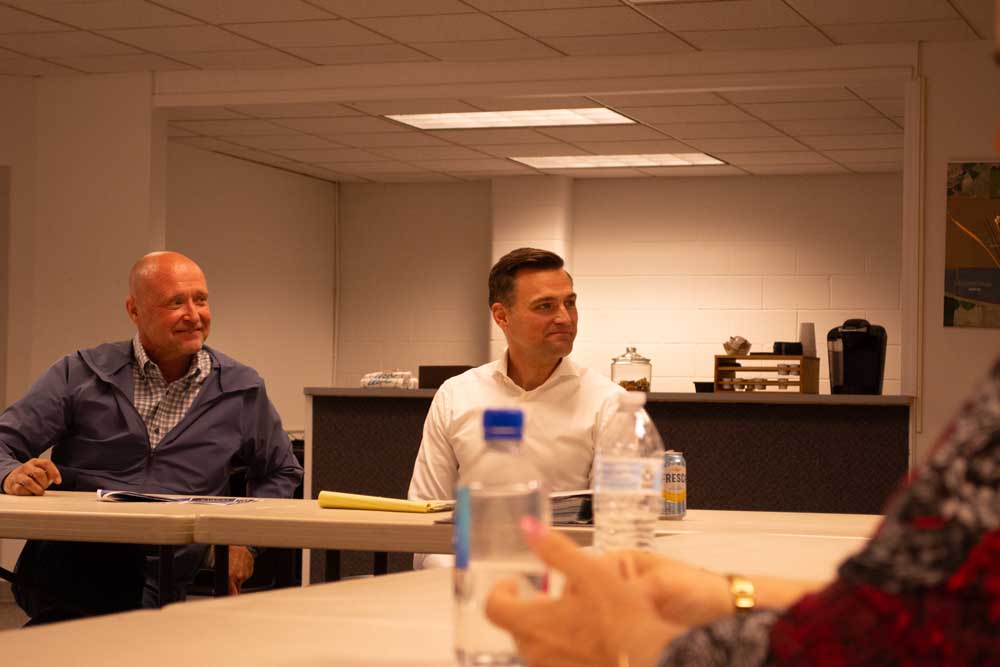Capital Chatter: Election endorsements still have a role to play
Published 5:00 pm Thursday, November 10, 2022

- capital chatter logo
Democrat Tina Kotek apparently will be Oregon’s next governor, although Republican Christine Drazan’s campaign on Thursday afternoon urged patience and said several hundred thousand ballots had yet to be counted from Tuesday’s election.
Given Kotek’s narrow victory, I’ll be interested whether anyone studies the influence of Oregon newspaper endorsements in this year’s elections.
Trending
Still, her win should surprise no one, despite several pre-election polls indicating Drazan had a slight edge, though well within the margin of error.
Democrats hold a longtime political advantage that less-organized Republicans have been unable to match, and neither could independent candidate Betsy Johnson: the manpower of public employee unions. They have an immense pool of volunteers to help with the less-glitzy parts of campaigning – calling voters, going door-to-door, sending post cards and the like.
Emerging “Rocky”-style through her crowd of campaign supporters, Kotek said all the right things in her victory speech Thursday morning. She won big in the Democratic strongholds of Multnomah, Benton, Washington and Lane counties, based on preliminary returns. By the way, according to a story Thursday in The Seattle Times, Multnomah County is even more Democratic-leaning than Seattle’s King County, which dominates Washington state politics.
The Oregon Blue Book lists more than 75 daily and weekly newspapers. As endorsements decline nationally and in Oregon, only 10 endorsed a gubernatorial candidate this fall:
• Kotek, seven: The Oregonian, Portland; The Astorian; Willamette Week; Portland Mercury; Bend Source Weekly; The Skanner, Portland; Eugene Weekly.
• Johnson, three: The Bulletin, Bend; Portland Tribune; News-Register, McMinnville.
Trending
• Drazan, zero.
A newspaper endorsement can be most influential in a tight race, if the endorsed candidate is not whom a reader expected, or when the reader knows little about the race. There’s little need for an Oregon newspaper to endorse a presidential candidate, unless the editorial board has unique insights and information. On the other hand, during my more than 20 years as an editorial page editor in Salem, readers often wished we would have made recommendations in Soil and Water Conservation District races because they knew nothing about those contests. (Neither did we.)
I find it particularly telling when the local newspaper does not support the candidate from the local area. Thus it was noteworthy that The Astorian endorsed Kotek over Johnson this year, or that the Salem Statesman Journal in 2016 recommended Democratic Gov. Kate Brown for election over Republican Bud Pierce, a beloved Salem physician. In 1986, before I was on the Statesman Journal editorial board, Republican Norma Paulus of Salem reportedly walked into the interview with the endorsement in her pocket and exited having lost it to Portland Democrat Neil Goldschmidt.
It’s certainly true that traditional civic institutions, including newspaper editorials, have declined in influence amid the rise of social media, which allow anyone to send unvetted opinions everywhere. Many newspaper companies have been willing to cede the public square to social media, avoiding election endorsements for lack of editorial staff to do the necessary in-depth work or for fear of alienating subscribers and advertisers. Some newspapers have abandoned opinion pages altogether, including letters to the editor and other community voices.
Some journalists consider endorsements a liability because readers may not recognize the separation between the newspaper’s news-reporting and opinion-deciding staffs. But the separation is real. As a reporter, I always said, “Don’t blame me for what’s in an editorial.” As an editorial writer and editor, I always said, “Don’t blame the reporters for what we write.”
Gerry O’Brien, editor of The Bulletin, thoughtfully explained the purpose of endorsements in a column last month, including:
“With so much input from social media platforms, one could argue that the endorsement is a thing of the past. To us, it remains part of our civic duty. We try to cut through the chatter of online forums and give one a succinct picture of why we support one candidate over another. Readers don’t have to take our advice and we wouldn’t want them to solely rely on what we have to say.
“Yet, readers have encouraged us to continue the endorsement tradition and candidates continue to seek our endorsement because it does carry some weight.”
And remember, readers always get the last word. They have the vote. And in many, probably most, Oregon newspapers, they still have their voices heard through letters to the editor.





